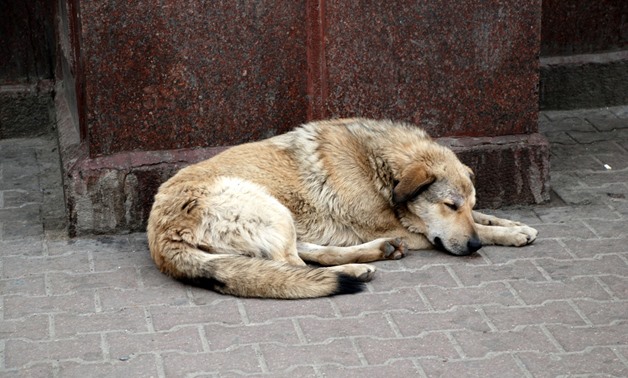
Photo courtesy of flickr- Stray dogs/Andrey
CAIRO – 21 March 2018: Animal welfare associations are demanding Egypt’s government halt its usage of the highly toxic “strychnine” to kill stray animals. Meanwhile, the government is insisting that getting rid of the animals meets people’s demands and constant complaints against dangerous animals. Officials also argue that their methods save the country huge amounts of money spent annually on importing treatment serums against bites.
Additionally, as a result of the rising cost of strychnine, which now reaches LE 13,000 ($737) per kilo, other alternatives could possibly take place. For instance, Sayed Obeid, director of the Directorate of Veterinary Medicine in Cairo, suggested using “cartouche” as an easier and quicker way of getting rid of stray dogs.
In statements to Egypt Today, Obeid said that he has suggested more than once using cartouche instead of strychnine to kill stray dogs, especially in remote areas. “I also suggested contracting with private companies specialized in combating stray dogs to ease the burden on veterinary doctors,” he added.
“Strychnine is not usually affective killing the animals, and the available amount is usually not enough to cover fighting stray dogs in complete areas or districts; accordingly, we receive a lot of complainants from residents,” Obeid said.
According to the General Organization for Veterinary Services, 398,000 people were bitten by stray dogs last year, and 65 of them have died. Cairo and Giza governorates’ people were mentioned to be at the highest risk due to rising population growth.
Ashraf Ismail, director of the Directorate of Veterinary Medicine Giza, said that the government gets rid of one thousand stray dogs monthly in his governorate (Giza) only using strychnine. He affirmed that the toxic chemical substance has all the legal approvals to be used against animals.
Only two grams of strychnine are enough to kill one dog, according to Ismail, so a kilo of it considered enough to kill about 500 dogs. “We don’t target stray dogs in general; we are aiming to get rid of dangerous dogs only in the places where we receive complaints from its residents,” Ismail affirmed.
Shooting stray dogs used to be a way of getting rid of dangerous animals in the past; however, recently, officials started using strychnine. Amid rising calls to stop using the toxic chemical substance by animal rights activists because of its side effects on children and soil, the government seems to be considering shooting them as a cheaper solution.
Given the complaint of strychnine’s rising cost and with the consideration of going back to the shooting as a cheaper solution, other solutions, such as neutering, which has a high cost of around EGP 400 for each dog, become unlikely to be implemented.
In his statements to Egypt Today, Ismail expressed his indignation from the animal rights activists’ continued demands to stop using strychnine against dogs. “It’s our safest and most appropriate solution against dangerous animals,” he said.
Poisoning and killing stray animals is not new to Egypt. Sometimes even residents do this on their own out of fear of being bitten by stray animals.
In November 2015, members of Egyptian animal rights organizations gathered outside Al-Ahly SC to protest the club’s alleged mass poisoning of stray cats. This protest came as a result of photos of dozens of poisoned stray cats, which went viral on social media, at Al-Ahly’s headquarters in Cairo’s upscale district of Zamalek. The photos then caused a backlash by activists and human rights groups.
Officials from the club said that they were not aware of the incident and blamed the company they contracted. “Our contract with the company says it should anesthetize the stray cats and place them in cages before they are taken to animal shelters,” Al-Ahly Director General Sheren Shams said in response to the anger.
Stray dogs and cats have been ubiquitous on Egypt’s streets for years, and although they are not typically mistreated, recent cases have been reported raising backlash from Egyptians against cruelty in dealing with animals.

Comments
Leave a Comment